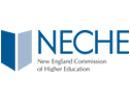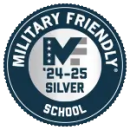ACCT-130
Explore Economic Crime Investigation
Created for those interested in building a career fighting white-collar crime and exposing fraud, Champlain's online bachelor's degree in economic crime investigation educates students about the critical issues faced by fraud examiners and investigators every day. With a focus on hands-on learning and designed with working adults in mind, this crime investigation degree program will help you differentiate yourself in the fields of law enforcement, risk management, and accounting.
Finish your program faster with credit for prior learning and experience.
Differentiate your degree and get your resume noticed with an added certificate. Speak with your advisor for information.
Build Your Career Future
Champlain's economic crime investigation degree program offers the opportunity to gain diversified expertise in areas from finance to forensics as you complete your criminal justice courses online. Champlain's economic crime investigation degree program will provide you with key skills (such as critical thinking and problem solving) and a robust foundation in financial fraud investigation that can be applied in both the public and private sectors. You'll also have the opportunity to build your credentials as you go and differentiate your resume through a certificate in Forensic Accounting.
Upon completion of the economic crime investigation degree program, you will be prepared for both the Certified Fraud Examiner test, as determined by ASIS International and the Association of Certified Fraud Examiners (ACFE), as well as the CAMS examination that is required by the Association of Certified Anti-Money Laundering Specialists (ACAMS) for certification.
Program Curriculum
Champlain's online economic crime investigation courses encompass the top skills needed by today's fraud examiner professionals. Graduates of the program are required to complete the following courses.
Professional Courses (66 credits)
General Education Courses (42 credits)
General Electives (12 credits)
Note: Some of the courses in this program are available in 15-week terms only. Please contact your advisor for details and information on how this may impact your time to completion.
Accounting is the language of business. This course introduces the student to accounting from the point of view of the user of financial reports and is appropriate for personal as well as business applications. Students explore the impact of transactions on the financial position and profitability of a business, and analyze financial reports of real-world corporations.
Managerial accounting focuses on the needs of management for accounting information to make informed decisions in the internal operations of a company. Topics include decision-making, accounting for planning and control, cost-volume-profit relationships, and budgeting.
Prerequisites
In this first course of a two-part sequence focusing on financial reporting students will learn theory, concepts, principles and practices underlying preparation of external financial reports, particularly application of generally accepted accounting principles related to disclosure of current and noncurrent assets and principles of revenue recognition on the Balance sheet, Income Statement and Statement of Retained Earnings. Students will also consider broad issues like the environment of financial reporting, the role of financial reporting and the accounting standard-setting process.
Prerequisites
ACCT-130
Building on the knowledge and skills gained in Intermediate Accounting I, students will examine more intensively the application of generally accepted accounting principles for financial reporting and disclosure of current and noncurrent liabilities and stockholders' equity. Students will gain skills related to the advanced measurement, recognition and reporting of these select topics in financial accounting as well as the Statement of Cash Flows.
Prerequisites
ACCT-230
This course serves as an introduction to forensic (fraud) accounting. Topics include fraud examination techniques, interview techniques, rules of evidence relating to fraud, internal control methodology, asset misappropriation and financial statement misrepresentation. Students cover various fraud examination techniques. Students also learn rules of evidence as they relate to several different fraudulent activities including illegal activities such as wagering, money laundering, cash skimming and embezzlement. Course presentation assumes basic accounting knowledge and guides the student into specialized applied settings, indicative of forensic accounting.
Prerequisites
ACCT-130
In this course students develop an understanding of the auditing process and the relationship between auditing and the organization. The student will demonstrate knowledge of specific auditing concepts, professional standards and procedures utilized by a professional auditor. The student will also discuss other attestation work performed by practicing CPAs as well as ethical and legal considerations of the public accounting profession.. Critical thinking and communication skills are utilized in the course assessments.
Prerequisites
Complete MATH-170 and ACCT-231.
This exciting course introduces students to the myriad software tools and best practices for handling digital evidence. Labs utilize Champlain College Online's Forensic VDI and challenge students to begin building their skills, from creating a hash value for a forensic copy with X-Ways Forensics and FTK Imager, to examining evidence with The Sleuth Kit (TSK), Autopsy and/or EnCase.
Prerequisites
Complete CMIT-135 and CMIT-140
This course explores more advanced topics and methodologies for examining digital evidence. Topics taught in this class include File System Forensics, Computer Operating System Forensics and Mobile Device Forensics. Students are challenged to work individually and in groups to examine and prepare detailed reports showing the relevance of digital evidence to mock cases. This course presents a higher level of technical detail and will balance theory and hands-on aspects for conducting digital forensic examinations.
Prerequisites
Complete CFDI-345
White collar crime investigations often require investigators and examiners to dig deep because the schemes to defraud are complex. In this course, students examine many different types of white-collar crime, including frauds (consumer, securities, corporate and fiduciary, and health care), environmental crimes, abuse of power (public officials and corruption), and computer crimes. Students are also asked to assume the role of forensic accountant in a scenario-based lab and determine what, if any, financial crimes have been committed.
Prerequisites
Complete CFDI-240. Complete ACCT-130 or ACCT-120.
Investigations don't just happen. Sometimes victims allow investigators to examine their devices and other times search warrants are necessary. In this course, students work a case in a manner that closely resembles piecing together a puzzle. They examine the digital evidence that is provided with Autopsy and Axiom, and then, in the final week, conclude the investigation and submit a final investigative report that documents the evidence, details the analysis work, provides an accurate timeline, and takes into account the information and data from the victim and offender(s).
Prerequisites
CFDI-240
Opportunities to explore abound! Students typically write papers, complete hands-on projects and/or conduct original research in this course. Topics are selected in the first few weeks, and then students demonstrate progress throughout the 15-week course. In the final week, students present their work to the class and instructor.
Prerequisites
Must complete 90 credits before taking this course.
Dig into network forensics and anti-forensics in this course, where students examine files for hidden messages and learn to use programs like MobileFish, OpenPuff and SilentEye to hide files in images and audio files, and Wireshark and NetworkMiner to analyze packet captures. Students also work with the Windows registry, practice locating Internet passwords from browsers using IE PassView and Google tools, and encrypt files/folders using AESCrypt and similar open source programs.
Prerequisites
CFDI-240 and CMIT-130
This course provides students with an understanding of the many different devices and technologies, from historical to emerging, that are required to design and build networks. In a broad survey of concepts and terminology, students will learn about topology, communications, protocols, and security, and to diagram basic networks to specification.
From day one, students in this course are problem solving, first in terms of algorithmic design and then as early as week two via programming in the latest version of Python, using PyCharm. Students begin by writing a program to have a conversation, having strings and numbers as input, and advance, by week seven, to building a working password saver program, capable of looking up, adding (and encrypting), and storing passwords.
This course introduces students to the fundamentals of substantive criminal law. With this foundation for understanding the legal system students will identify the essential elements of crimes, including the criminal act, criminal state of mind, and jurisdiction. They will examine the rationale underlying criminal law, factors affecting criminal responsibility, and legal defenses. By analyzing real-world scenarios, students will develop skills to distinguish lawful from unlawful actions and prepare for advanced studies or careers in criminal justice.
This course focuses on the rules and procedures governing how the American criminal justice system must process individuals suspected, accused, and convicted of law violations.
Computer evidence (digital evidence) is being used every day in our country to convict criminals of crimes ranging from possession of child pornography to embezzlement to murder. Every competent, modern law enforcement officer understands the significance of digital evidence in every case submitted for prosecution. Students will be required to learn, and apply, legal principles that govern how this vital evidence is recovered (and used) to insure that it will be legally admissible in court.
Prerequisites
CRIM-120, CFDI-240 and 60 completed credits or permission of the program director.
This course, through guided research and hands-on learning experiences, provides students with an understanding of operating systems, including their core fundamental principles and how they work. Students are introduced to the three most popular operating systems for personal computers (Windows, OSX and Linux), and mobile operating systems, and learn about standard functions such as memory, process/thread, input/output, storage and device management.
MGMT 240 is a finance course for managers. It explores financial measurements, the artful application of numbers to solve problems, building financial analysis skills, and the big-picture context needed to understand why finance matters in business management and decision-making. A subset of topics covered in the course include the time value of money, financial statement analysis, ratio analysis, investments, and capital management.
This course will introduce foundation subject matter and technologies that are critical to the multidisciplinary landscape of cybersecurity.
Building on the skills students have previously acquired, this course offers students the opportunity to deep dive into a case using X-Ways Forensics to examine the registry, understand "typical" user activities on the Internet (social media and search histories, for example), and create a timeline/events. Students also gain more experience with RegRipper along with an introduction to analyzing a memory dump using Volatility.
Prerequisites
Complete CFDI-240
In addition to the following requirements, students must also complete 3 Credits of a General Education Elective (Any ARTS, COMM, CRIT, ECON, ENGL, HIST, MATH, PHIL, PSYC, SCIE, SOCI, MKCM 120, CRIM except CRIM-225)
This course introduces students to the foundational concepts needed to communicate effectively in writing for academic study and professional development. Students will also learn to read critically to evaluate an author's message. Students will be introduced to rhetorical modes and their role in the development of written communication. Students will also learn how to use revision strategies to create written communication that meets its intended purpose for its intended audience
This course builds on students' proficiency in the writing process and rhetorical modes to introduce the use of sources in written communication. Students will practice information literacy as they learn to determine information needs from sources, develop effective search strategies, and incorporate sources in written communication, legally and ethically.
Prerequisites
Complete ENGL-100
Starting with a frame of human communication as a dynamic system of interactions in which people make choices that impact their relationships, other people, and themselves, students will define theory-informed communication concepts and processes, and critically examine how they apply to everyday life across a variety of contexts. Students will reflect on how the theory, concepts and processes apply to their own lives in becoming competent communicators who are knowledgeable, skilled, and versatile.
This course examines the principles of effective small group interaction. Students will analyze group development stages and small group roles. They will identify and evaluate communication skills that enhance small group cohesion and problem-solving. Students will explain how conflict affects group processes and compare face-to-face versus digital collaboration environments. These skills prepare students to participate effectively in group settings across academic, professional, and community contexts.
Students will learn and apply critical inquiry skills to analyze persuasive communication created by others and to develop persuasive communication/arguments of their own to solve problems in professional, civic, social, and personal contexts. Specifically, students will learn to recognize fallacies in logic; apply inductive and deductive reasoning strategies to the interpretation and development of persuasive communication; evaluate the validity of sources; and develop logically sound persuasive communication. Students will explore the roles of self-awareness, empathy, and ethics in the context of critical inquiry and the development of arguments.
Prerequisites
Complete ENGL-110.
This course is an historical overview, and examination of the evolution of digital, film, and print media, and their functions. Students will identify and analyze contemporary problems of the media such as the legal, social, economic and psychological implications of their relationships with society. They also will examine the ways in which marketing and PR professionals utilize the mass media channels to reach their intended target audiences.
This course explores the complex and evolving relationship between human beings and technology. Through a multi-disciplinary approach that draws on fields such as sociology, psychology, philosophy, and history, students will examine the ways in which technology has shaped human culture, identity, and values, as well as how humans have influenced and continue to influence the development, adoption and use of technology.
Mathematical reasoning, when applied to everyday and professional lives, has two dimensions: logic for deterministic situations and probabilities for non-deterministic situations. This course aims to help students develop these mathematical reasoning skills.
This course introduces students to basic statistics for data literacy. With a focus on exploring real-world data, students will interpret numerical information and utilize the tools necessary to complete the entire statistical process: designing a study; gathering, organizing, and analyzing sample data; and making inferences about a population. Students will demonstrate data-driven decision-making and effective communication of numerical data.
Introduces students to the biochemistry and physiology of nutrition and exercise. Emphasis will be placed on human body systems such as musculoskeletal, digestive, respiratory and circulatory, and their relationship to nutrition and fitness. Students will also study the biochemistry of energy conversion as it relates to exercise physiology. Laboratory sessions are designed to reinforce, by a hands-on approach, the principles discussed in lecture. Course includes two laboratory hours per week.
Students will develop the ability to apply scientific methods to understand the natural world, to identify scientific aspects of daily life, and to evaluate the quality of scientific information based on its source and the methods used for its generation.
In this course, students will gain an introduction to classical mechanics and learn about motion, force, energy, and momentum. The course covers vectors, scalars, and coordinate systems, as well as kinematics in one and two dimensions, Newton's Laws of Motion, circular motion, and kinetic energy and work. Students also learn about potential energy and energy conservation, collision theory, rotational motion, moment of inertia, torque, rotational dynamics, and angular momentum.
This course will introduce students to major streams of social justice thought, including historical social justice movements, theoretical problems having to do with social equality, personal freedom, marginalization, and stigmatization, and the ways in which civic and professional communities respond to these issues.
With pressure and release, a window opens and closes, recording light on a sensor. The simple action captures the instinct, judgement, and skill of the person behind the lens. This class will begin a study of the art and craft of photography. Students will develop their vision and their understanding of how to achieve it. Solid skills will be learned and many doors will be opened.
A survey of the continuing change experienced in art since the 15th century. Students will examine how an image is achieved as well as the significance of the subject represented. Individual inquiry concerning the nature of art is encouraged.
Students learn to appreciate films through the critical analysis of various elements of mise-en-scene, cinematography, editing and sound. The course introduces the conventions of classical Hollywood cinema, considers the work of one major director (auteur), and surveys selected international and independent films. Students view and discuss films each week.
Students in the course will explore the cultural history of the music genre broadly referred to as rock. Students will explore the social, economic and political contexts that are influenced by and that influenced each style in the United States. By listening, watching, reflecting upon, discussing and writing, students will explore how music takes on meaning, personally, and culturally. Topics and themes include the relationships between and among gospel, country, funk, folk, disco, rap and hip hop; the role of business and technology in those relationships, and political or transgressive elements of rock music.
Specific application of common tools for writing in the working world. Students will be instructed in rhetorical strategies of professional writing including style, report formats, editing, document design, and integration of visual aids. Students will complete a semester-long writing project; oral and written reports associated with the process of problem-solving within the project will be included.
Prerequisites
ENGL-112 or COR-125
Students will learn how to create conditions for successful conflict engagement, a necessary skill for any professional. The course focuses on the foundational capacities to remain calm and connected with oneself and others. In this state students can access helpful ideas and responses and be their best selves regardless of environment. Improving facility for conflict creates stronger relationships and reduces fear. By the end of the course, students will understand that disagreement and difference can become a source of personal and interpersonal growth.
In this course, students will explore and apply writing principles and techniques to effectively interpret and write technical workplace materials. Students will enhance and gain skills to communicate business and technical information by producing instructions, describing processes, applying document design elements, creating and integrating illustrations, researching and writing proposals and formal reports, and presenting content for decision-makers.
This course introduces students to the fundamentals of substantive criminal law. With this foundation for understanding the legal system students will identify the essential elements of crimes, including the criminal act, criminal state of mind, and jurisdiction. They will examine the rationale underlying criminal law, factors affecting criminal responsibility, and legal defenses. By analyzing real-world scenarios, students will develop skills to distinguish lawful from unlawful actions and prepare for advanced studies or careers in criminal justice.
This course focuses on the rules and procedures governing how the American criminal justice system must process individuals suspected, accused, and convicted of law violations.
In this course, students will explore the theory and fundamentals of criminal investigation, emphasizing practical applications for evidence handling and case development. Students will review basic responsibilities of investigators and protocols for report writing, evidence collection, and preparation of cases for trial. The curriculum examines investigative approaches for various crime categories, including violent offenses, property crimes, terrorism, and hate crimes, while introducing comparative perspectives from diverse legal systems.
Prerequisites
Take CRIM-120.
Principles of Economics introduces the fundamental concepts of economics - the study of how people manage resources, and how they react to scarcity. This course focuses on both microeconomics (the behavior of consumers and companies) and macroeconomics (large-scale economic factors such as employment and interest rates), so that you'll gain a broad understanding of how a modern market economy functions, how decisions in business settings are informed by economics, and how economics applies to your everyday life.
Students will study important themes in the social history of the United States since the Civil War. This course allows students to expand their critical thinking skills through an examination of primary and secondary sources. Themes might include: the evolving status of women; the immigrant experience; the concept of the American dream; the paradox of freedom vs. slavery; the minority experience; the tensions between social classes. Students will be evaluated primarily on writing assignments.
In this course, students will explore broad, foundational knowledge in psychology, including its history, major theorists and a survey of psychology subfields such as developmental, cognitive and social psychology. Students will also describe and assess the role of ethics and social responsibility in the study and application of psychological theory and practices.
In this class, students will explore how social relationships, groups, societies and culture develop and change over time. From a sociological theory foundation and employing the sociological imagination, students will examine the impact of social structures, institutions, and systems on individual lives. Students will apply sociological research methods to investigate sociological phenomena in their own lives.
Additional Program Details
Graduates of the economic crime investigation bachelor's online program will demonstrate the following industry-specific skills, knowledge, and competencies:
- Problem -Solving: Given a set of data abnormalities, select appropriate evidence to support potential legal action.
- Financial Intelligence: Create and interpret financial information, identify abnormalities in that information and gather support for potential legal action.
- Legal Proficiency: Apply principles of criminal/civil law to develop investigative techniques and documentation to discover and prosecute economic fraud.
- Information Technology Intelligence: Evaluate and effectively use financial and investigative technologies to identify, gather and communicate evidence of economic crimes.
- Analytical Skills: Using scientific methods, systematically and objectively gather, document and analyze financial and other data to identify economic crimes.
- Integrative Intelligence: Integrate financial, legal and forensic perspectives when conducting investigations and preparing for related legal actions.
- Communication: Actively and critically gather evidence and answer questions concisely and to the point when presenting evidence.
Learning outcomes for the B.S. in Economic Crime Investigation program are based on recommendations from ASIS International, Association of Certified Fraud Examiners (ACFE), and Association of Certified Anti-Money Laundering Specialists (ACAMS), and will prepare students to sit for both the CFE exam and certification exams through the International Compliance Association and the International Association of Financial Crime Investigators.
Design your own degree and enhance its value and focus by adding a certificate. Adding a certificate allows you to develop specialized skills, strengthen your résumé, and tailor your education to align with career goals. Choose from the undergraduate or graduate certificates on this page.
Note: To earn a certificate, you must speak with your advisor first. You must be officially enrolled in the certificate program before you complete the required courses in it — coursework completed prior to enrollment cannot be applied later, and certificates may not be added retroactively. Careful planning with an advisor is essential to ensure all policies and timelines are met.
Our admissions team seeks to admit students who:
- Demonstrate a solid academic foundation - a minimum 2.5 GPA is our recommendation, though exceptions may be made on a case-by-case basis for those who demonstrate a potential for academic success in other ways.
- Possess an aptitude for success in an online learning environment.
- Exhibit the ability to make a positive contribution to the Champlain College Online community.
To learn more about submitting transcripts, or requirements for home-schooled students, those educated abroad or returning students visit our Undergraduate Admissions page.
Our transfer credit evaluation team works hard to ensure you get the transfer credits you deserve, from a variety of sources including prior college credits, work experience and training, military training and experience, and more. Our goal is to help you graduate from Champlain College Online as quickly and affordably as possible. Visit our Transfer Credit Options page to learn more.
Champlain College Online's computer science faculty, led by program director Richard Pickering, are expert practitioners in the field. Their industry expertise ensures that our curriculum is aligned with the needs of employers, and reflects the skills today’s IT systems professionals need for success. Classes led by our seasoned experts will give you real-world insight into the world of information technology, and create a rich community of career-focused learning.
Tuition & Costs
Online Undergraduate Tuition Fall '25 - Summer '26
Tuition & Costs
Online Undergraduate Tuition Fall '26 - Summer '27
* Alumni is defined, for this tuition rate, as any degree program graduate from Champlain College or Champlain College Online.
** Veteran rate effective Spring 2025, not retroactive
See the undergraduate cost of attendance and fees here
Affordability and Paying For Your Education
We provide a number of options to make your online education affordable, including preferred tuition for alumni, associate degree graduates, community college graduates, and military.
What Can You Do With A Degree In Economic Crime Investigation?
Graduates of the economic crime bachelor's degree program are qualified to pursue a number of career paths in financial examination, fraud examination, and private investigation in a variety of industries, including insurance, finance, and the state and federal government.
Depending on the career path that graduates select, professionals in this field can anticipate consistent job growth over time. Financial examiner careers are expected to grow 18% between 2020 and 2030 (much faster than the average for all occupations) and earn a median annual salary of $81,430.* Private investigators can also expect positive career growth, with careers in the field growing 13% between 2020 and 2030 (also faster than average); these jobs earn a median annual salary of $53,320.*
*Sources: Bureau of Labor Statistics (BLS), 2020; job titles: Association of Certified Fraud Examiners, 2020
Top Jobs for Bachelor's in Economic Crime Investigation Graduates
- Fraud Analyst
- Fraud Examiner
- Loss Prevention Specialist
- Police Detective
- Private Investigator

Why Champlain
Flexibility
"I chose Champlain because it gave me the flexibility I needed. The accelerated format offers a great way to reach your goals faster, and makes earning your degree or certificate a realistic achievement that truly is obtainable."

Academic Excellence and Recognition

Regionally accredited by the New England Commission of Higher Education

Designated as a Military Friendly School for our commitment to the military community
Ranked among the best by Tech Guide for game design and computer science

Named the among the best schools with accelerated bachelor's degrees by Intelligent.com
Meet the Program Director
Richard Pickering, PhD
- Computer Science
- Software Development
- Software Engineering & Project Management
- Web Design & Development
About
Dr. Richard Pickering is an Assistant Professor and the Program Director for Technology here at Champlain College Online. Richard has a Ph.D. in Teaching and Learning coupled with an MBA and numerous technology-related certifications.
Prior to Champlain, Dr. Pickering enjoyed a distinguished career blending pedagogical expertise with strategic leadership in program management and product development in the educational business sector.
Dr. Pickering also has held positions as Chief Executive Officer at Virtual High School Global Consortium, Chief Operating Officer at Victory Productions, various Program/Product Manager posts as well as Adjunct Professor appointments.

Frequently Asked Questions
An economic crime investigator analyzes financial records, detects fraud, and investigates crimes like embezzlement, money laundering, and identity theft to prevent financial misconduct. Champlain College offers a BS in Economic Crime Investigation to equip you to pursue an economic crime investigator career path – earn your BS in less than four years.
A bachelor’s in economic crime investigation teaches skills in forensic accounting, fraud detection, data analysis, cybersecurity, and financial crime prevention, preparing you for roles in law enforcement, finance, and compliance. You can gain the industry essentials while earning your BS in Economic Crime Investigation at Champlain College fully online.
After graduation, consider certifications like Certified Fraud Examiner (CFE), Certified Anti-Money Laundering Specialist (CAMS), Certified Information Systems Auditor (CISA), or Certified Financial Crime Specialist (CFCS) to enhance your credentials. Champlain College’s BS in Economic Crime Investigation curriculum is designed in alignment with certifying agency standards to position students to successfully pursue key industry certifications.
You May Also Be Interested In
Get Your Economic Crime Investigation Guide
Learn what you can expect from our online bachelor's in economic crime investigation program.

Download Program Guide
I acknowledge that, by clicking the "submit" button, I am giving my express written consent to Champlain College and its representatives to contact me about educational opportunities via email, text, or phone, at the phone number above, including my mobile phone, using an automatic dialer, or pre-recorded message. Message and data rates may apply. I understand that my consent is not a requirement for enrollment, and I may withdraw my consent at any time.






